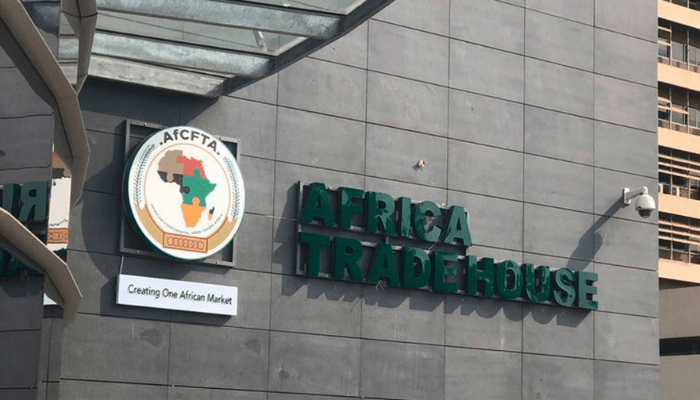
The recent launch of Nigeria’s AfCFTA Guided Trade Initiative marks a pivotal moment in the nation’s economic trajectory. Led by President Bola Ahmed Tinubu, and Mr. Olusegun Awolowo, National Coordinator of Nigeria’s AfCFTA Coordination Office, the event symbolizes Nigeria’s commitment to intra-African trade integration and economic advancement.
Historical Context and Vision: The event, held at the Tin Can Island Port, Lagos, on July 16, 2024, builds upon Nigeria’s historical role in driving Africa’s economic and trade dynamics. From the Lagos Action Plan of 1980 to the Abuja Treaty of 1991, Nigeria has steadfastly championed regional integration, laying the foundation for the African Continental Free Trade Area (AfCFTA) we see today.
President Tinubu emphasized that AfCFTA isn’t merely a trade agreement but a bold vision for Africa’s industrialization and equitable growth. The initiative aims to create an enabling environment for businesses, foster innovation, and ensure competitiveness across the continent.
Key Objectives and Strategies: The Guided Trade Initiative under AfCFTA seeks to ignite economic opportunities and shared prosperity across Africa. It calls for collaborative efforts among African nations to address challenges and capitalize on the vast potential of intra-African trade.
Mr. Awolowo highlighted Nigeria’s strategic advantages, including its location, robust economic fundamentals, and dynamic entrepreneurial spirit, positioning the country as a hub for trade and investment under AfCFTA.
Government Support and Stakeholder Engagement: Acknowledging the critical role of public-private partnerships, President Tinubu announced the transformation of the National Action Committee on AfCFTA into the Nigeria/AfCFTA Coordination Office. This move aims to strengthen Nigeria’s institutional and legal frameworks, ensuring effective implementation and maximizing benefits at domestic, sub-regional, and continental levels.
Mr. Awolowo expressed gratitude to stakeholders, including government officials, business leaders, and development partners, whose collaboration was integral to Nigeria’s preparedness for AfCFTA. Notable mentions included the Secretary to the Federal Government, Senator George Akume, and key ministers driving sector-specific strategies under AfCFTA.
Pioneering Exporters and Future Prospects: The event showcased pioneering Nigerian companies participating in the inaugural shipments under AfCFTA. These trailblazing businesses, ranging from Le Look Nigeria Limited exporting bags to Kenya to Dangote exporting clinkers to Cameroon, exemplify Nigeria’s potential to thrive in the expanded African market.
Economic Impact: Signed by 44 African Union member states in Kigali in 2018 and ratified by 46 countries as of January 2024, the AfCFTA represents a monumental effort to create an integrated market for goods, services, and investment, benefiting 1.3 billion people with a combined GDP of US$3.4 trillion. For Nigeria, participation means expanded market access, increased competitiveness for local businesses, and the potential to lift millions out of poverty through enhanced trade opportunities. However, challenges such as the establishment of effective Rules of Origin (ROO) and mitigating foreign competition need addressing to fully capitalize on the AfCFTA’s benefits.
As Nigeria embarks on this transformative journey under AfCFTA, there is a collective commitment to realizing the initiative’s full potential. The Guided Trade Initiative not only promises economic growth but also fosters regional integration, innovation, and sustainable development across Africa.
Follow us on Social Media: Stay updated with the latest news and insights on African trade and economic development. Follow Harboursim LP on LinkedIn for more updates.
